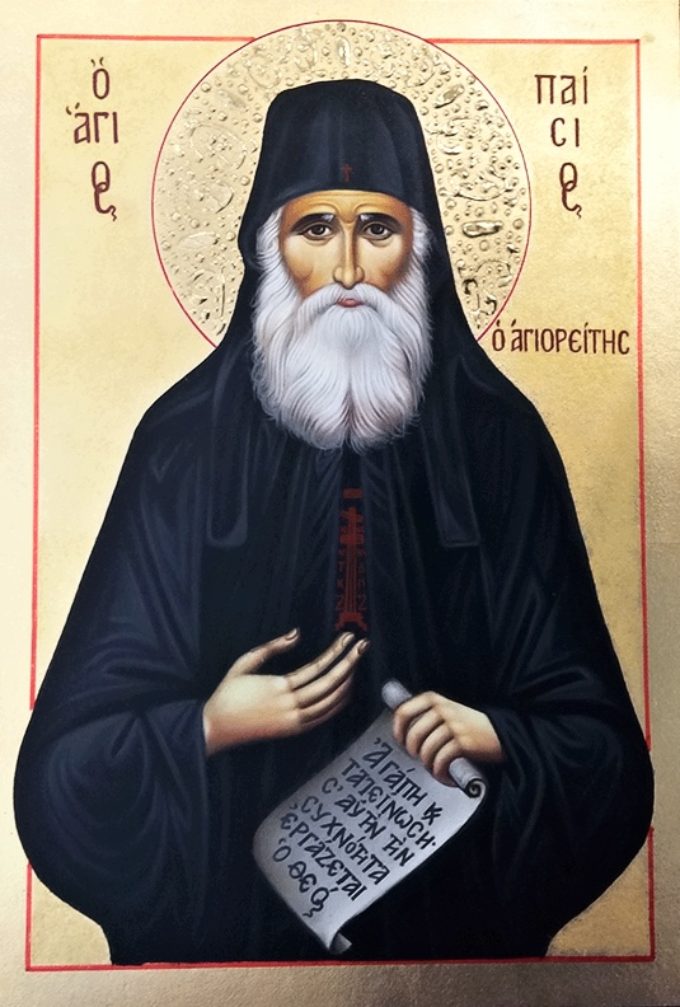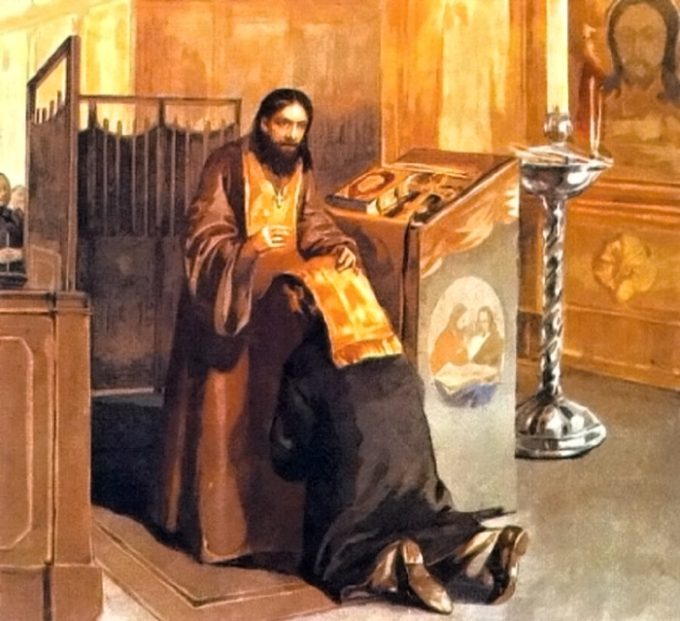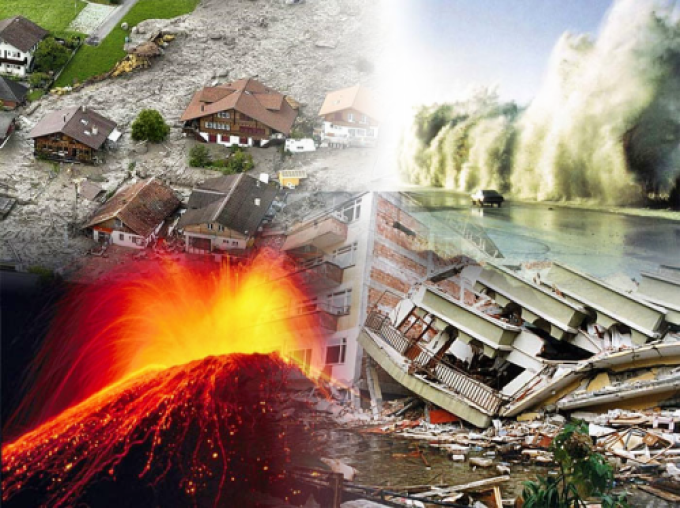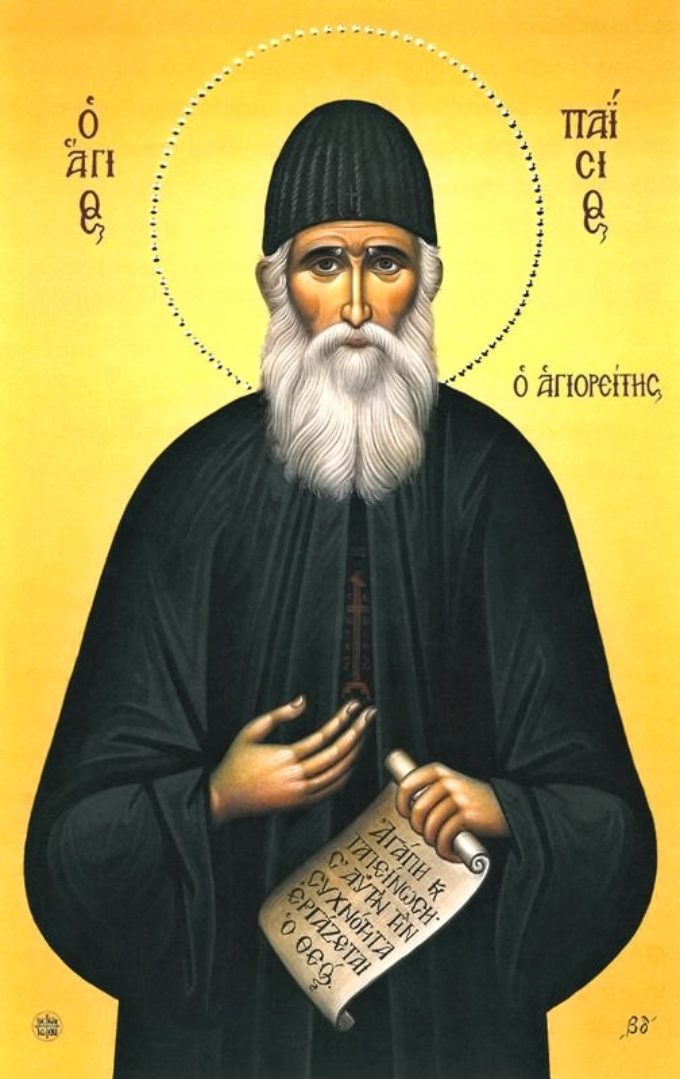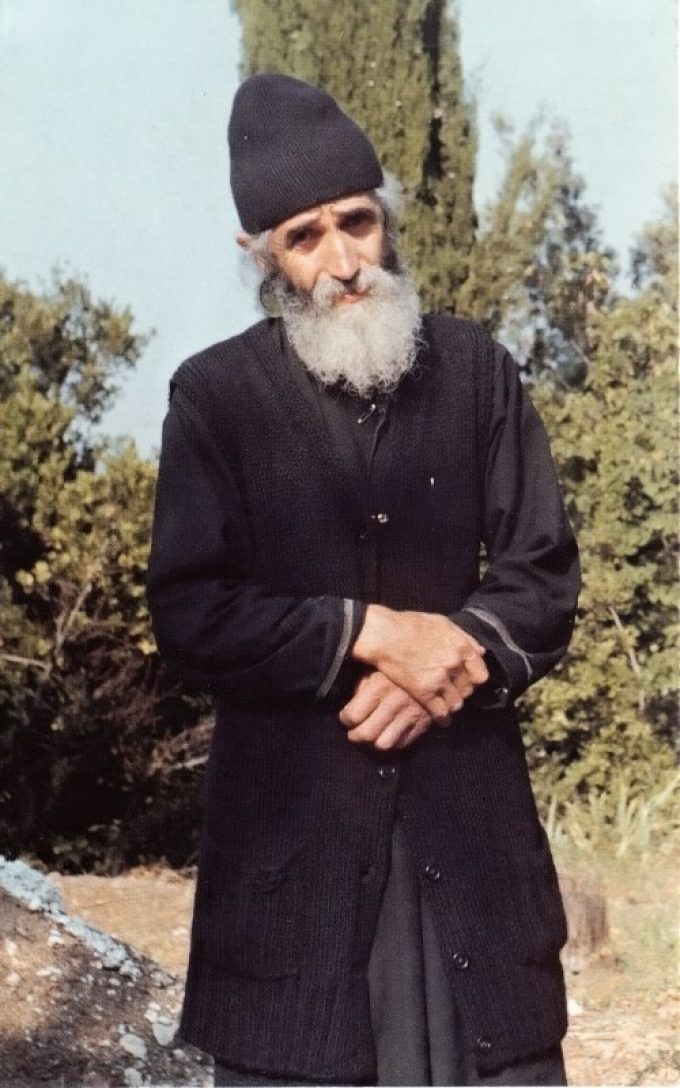Someone can easily harm himself if there is pride and selfishness. You notice this even at snakes. You can easily kill a viper. Because it has venom, it stays there, raises its head, moves its tongue like scissors and provokes. It has self confidence. That’s why you take a stone and kill it. As for the other snakes, when you see them, they leave.
*
When two hard stones collide, there are sparks. But when one of them is soft, no matter how hard is the other one, there are no sparks. With the people is the same. The humble one is a soft stone. In a dispute the humble one surrenders and there is no damage done.
*
If there is a despondent monk, in the good meaning of the word and he will say : My Lord I am not worthy to pray for the world and he does not pray for the world, because he feels he is unworthy for that when he forgets and prays for it, his prayer will be more powerful than any other prayer in the world.
*
Before when someone had committed a mistake, a sin, there was shame. But now there is no more shame. The devil of callousness comes and then he does whatever he wants with us. That’s why first of all the man needs the good restlessness.
*
If let’s assume that we keep vigils, do prostrations and everything appertaining to monasticism but there is no monastic spirit, everything is lost.
*
If someone loves himself he isolates himself of God.
*
Usually the thoughts come from the outside like some telegrams. But when the man is in a bad condition, then the thoughts are his. Then he produces electricity by himself.
*
The gift of discernment is the last one we acquire. The discernment is the crown of all virtues. Is the crown God gives to all ascetics at the end of their struggles. We must try to live in accordance with the commandments of God and He shall give us everything we need for the salvation of our souls.
*
There is a need for discernment when we wish to someone `good repentance` When you say it to someone who is a good man of the Church, who has certain good exterior deeds it is as if you scolded him. What is this one saying to me? he muses. What am I, a villain to wish me `good repentance`? While repentance is required from all of us for saving our souls.
*
It is better to be a prodigal than a lover of money. I might be wrong in what regards the saving of money. In order to have enough Turkish delight to offer to the visitors, I cut the pieces in two. But the Turkish delight was never enough. But when I asked them to take two pieces, then I had enough. But the man who has family has the duty to save money without stress to help his children.
*
The true and perfect humility is when the man reaches such a state that even if he wanted to be proud, he cannot do it.
*
Love does not tire.
*
The men become like robots. They have no more reason. In a few years only those who work in research will still have reason. The others will become like robots.
*
We are not guilty for the bad thoughts that are coming to us. But we are wrong when we receive them. It is not enough that they bother us, shall we make ourselves guilty for them?
*
God gives us the reason to reach the state to stop it.
*
With what I see and hear I would have gone out of my mind if I hadn’t fought against them with the thought that ultimately God has the last word.
*
The good thoughts are the foundation of the spiritual life.
*
Both the parents and children who come to the Holy Mountain deserve to be honored.
*
In the Romanian skete of Prodromos there was a very obedient novice. He never said no. Anyone who needed someone took him. One day since he was so obedient and tried not to say no to anyone he sat on the ledge of the church because he was exhausted. That was it. He died there. When the monks found him there they started to say: But 10 minutes ago he was with me in the garden. An hour ago he was with me at fishing. Another one was helped by the novice at the bakery another one somewhere else. Then they understood why he had died. Certainly he had gone to heaven, but then how were going the monks who were responsible for that to face God?
*
Once I went and visited a monk from neighbourhood. I had never visited him before. He was a good monk who had good spiritual endeavours .
I am old by now – he said – and I am going to die soon and I hadn’t done anything in my entire life. Everyone does something in his life. When they go before God they all will have something. But I don’t have anything. And while saying these he had tears flowing down from his eyes.
Everything we do – I told him – we do it to come to this conclusion, to this nothing. Regardless of all our ascetic struggles, we have to come to this end, to the conviction that we are nothing. And as long as you came here, why would you need the others?
And he said these although he was a struggler.
From the book From the Ascetic and Hesychast Tradition of the Holy Mountain –Evanghelismos Publishing, 2016.

